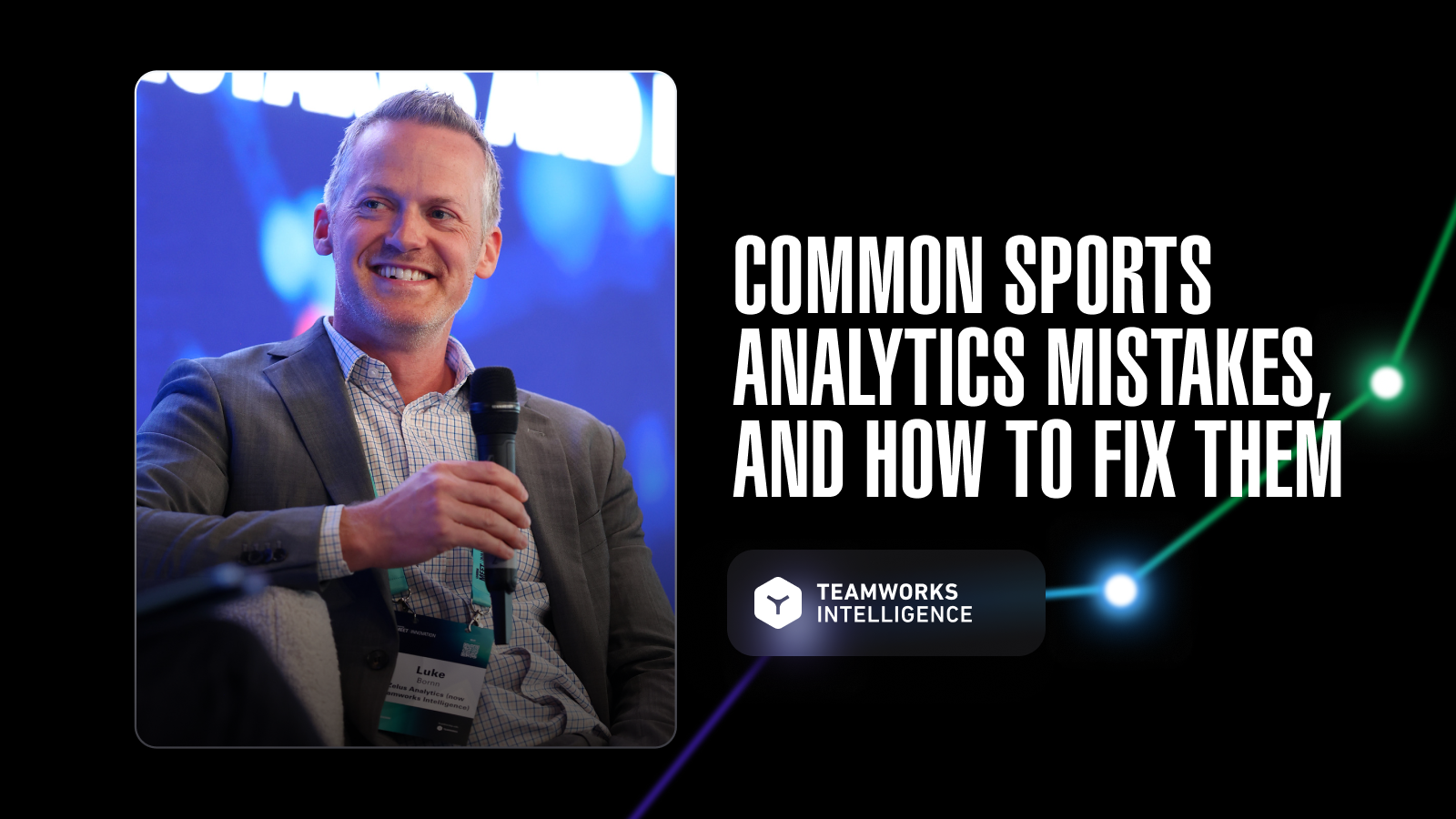At the recent Leaders Meet event in London, Luke Bornn, Co-founder of Zelus Analytics, now Teamworks Player ID, took the main stage to deliver a compelling talk on one of the most misunderstood areas in elite sport: sports analytics.
In a room full of decision-makers from across the global sports landscape, Luke challenged the audience to rethink their approach to analytics — not as a purely technical exercise, but as a driver of organizational impact and strategic alignment. Drawing on insightful (and often humorous) examples from his work across football, basketball, and cricket, he brought the conversation to life with real-world relevance.
Here are three of the biggest takeaways from his session:
1. Start With the “Why” — Align Analytics with Decisions
One of the most common mistakes in sports analytics is investing in data and models without a clear sense of purpose. As Luke pointed out, organizations often say their goal is simply “to get smarter” — but smarter how?
Instead, teams should start by asking:
What decisions are we trying to improve?
Whether it’s recruitment, or tactical planning, the value of analytics lies in improving the accuracy of key decisions. Everything else is secondary.
“If you can’t clearly articulate what decisions your analytics are meant to support, you’re unlikely to see real ROI,” Luke emphasized.
2. Keep the Main Thing the Main Thing
In today’s tech-forward environment, it’s easy for teams to chase shiny objects — custom software, complex models, or experimental metrics. But often, these are distractions.
Luke’s advice was simple:
Stick to your core competency.
If you’re a club with a limited team of analysts, don’t burn cycles building custom platforms or experimenting with fringe testing methodologies unless they directly serve your strategic goals.
“Resource allocation matters. Focus on what will actually move the needle,” he said.
3. Pull, Don’t Push — Embed Analytics Within the Org
Perhaps the most nuanced insight came from Luke’s third point: the problem of “pushing” analytics. Too often, analytics teams are tasked not only with building tools and models, but also with “evangelizing” them across departments.
But in practice, this rarely works. The responsibility for data adoption shouldn’t sit solely with the analytics team — it needs to be shared by the entire organization.
Luke’s proposed shift:
Build quantitative literacy within key functional units — sports science, coaching, recruitment, nutrition — and let those teams pull analytics into their workflows.
“Analytics shouldn’t be a standalone function. It should be embedded and pulled by the people making decisions.”
A Mindset Shift for High-Performance Teams
Luke’s session was a timely reminder that analytics success is not just about having the best tools or smartest people — it’s about building the right culture, asking the right questions, and focusing on the decisions that matter most.
As Teamworks Intelligence continues to partner with elite organizations across the world, these lessons remain at the heart of how we think about performance and innovation in sport.
Interested in learning more about how Teamworks helps high-performance teams get more from their data? Explore Teamworks Player ID.
